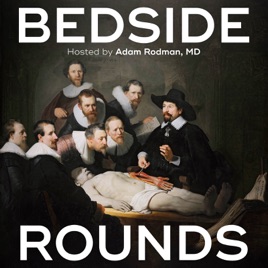
Advertise on podcast: Bedside Rounds
Rating
4.8 from
Country
This podcast has
86 episodes
Language
Publisher
Explicit
No
Date created
2014/09/16
Average duration
44 min.
Release period
64 days
Description
Bedside Rounds is a storytelling podcast about medical history and medicine’s intersections with society and culture. Host Adam Rodman seeks to tell a few of these weird, wonderful, and intensely human stories that have made modern medicine.
Social media
Check Bedside Rounds social media presence
Podcast episodes
Check latest episodes from Bedside Rounds podcast
74 - R2D2
2023/09/03
What does it mean when a computer can make better medical decisions than a human? The progress in large language models, and in particular the popularity of ChatGPT, has brought these questions to the forefront in 2023, but we’ve been discussing this for over 50 years. In this episode, Dr. Shani Herzig and I are going all the way back to the early 1970s with the invention of AAPHELP, the first real clinical decision support system, and the first time doctors had to contemplate working with – or competing against – computer systems.
more
73 - Seadragon
2023/06/26
What happens when a patient far from surgical care – say, at the bottom of the Pacific ocean on a submarine, or at a research base in Antarctica in the middle of the winter – develops a surgical abdomen? This dilemma was the impetus to build the first truly effective clinical decision support system – and to grapple with what it means when a computer can make better medical decisions than a doctor. In this episode, part one of three, we discuss the dramatic stories of appendectomies at Novolazarevskaya and aboard the submarine Seadragon. Also, there’s a brand new #AdamAnswers about the origin of the word “scut.”
more
72 - Problems
2023/03/20
American doctors spend the majority of their time during the day on the computer, either writing or reading notes about their patients; only a small fraction is spent with the human beings in their care. Technology itself – especially the electronic medical record – has often been blamed for this. But in this episode – a recorded grand rounds that I gave at the San Francisco VA in 2022 – I argue that this alienation has its roots in the way we’ve decided to organize clinical data, and the assumptions that we’ve made about the nature of medical care. In particular, I’m going to discuss one of the most influential medical thinkers of the second half of the 20th century, Larry Weed, his invention of the problem-oriented medical record and the SOAP note, and how his insight – that medical documentation fundamentally influences how we think about our patients – changed the way we think about our patients.
more
71 - A Doctor's Work, part 2
2023/01/16
In the past episode, cultural and medical historians Lakshmi Krishnan and Mike Neuss discussed the history of the actual work of the doctor – Holmesian detective, data entry clerk, or something else altogether. In this episode, we conclude our discussion by talking about what type of metaphors are best suited for clinical work. Plus a brand new #AdamAnswers about the reason that American doctors are so obsessed with using, well, the # symbol in our notes.
more
70 - A Doctor's Work
2022/12/19
What do doctors actually do? Are they Sherlockian detectives, hunting down obscure clues to solve intractable cases? Are they virtuosic experts, training for half a lifetime to bring the latest science to bear to cure disease? Or are they clerks, whose main job is to collect and enter data into the electronic health record? In this episode, Adam is joined by medical and cultural historians Lakshmi Krishnan and Mike Neuss to discuss the stories we tell about our own work – and how this often conflicts with the realities of clinical practice.
more
69 - The Database
2022/10/31
How do doctors actually think? And if we can answer that, can we train a computer to do a better job? In the post-WW2 period, a group of iconoclastic physicians set about to redefine the nature and structure of clinical reasoning and tried to build a diagnostic machine. Though they would ultimately fail, their failure set the stage for the birth of the electronic health records, formalized the review of systems, and set up a metacognitive conflict that remains unresolved to this day. This episode, entitled “The Database,” is the second part of this on the history of diagnosis with Gurpreet Dhaliwal.
more
68 - The History
2022/07/25
Internal medicine physicians like to pride ourselves on our clinical reasoning – the ability to talk to any patient, pluck out seemingly random bits of information, and make a mystery diagnosis. But how does this actually work? In this episode, called The History, I’ll be joined by Gurpreet Dhaliwal as we explore the beginnings of our understanding on how clinical reasoning works – starting in the middle of the 19th century with polar tensions between two ways of approaching our patients that are still felt today. Along the way, we’ll talk about the American Civil War, Car Talk, Sherlock Holmes, and whether the practice of medicine can ever be considered a science.
Sign up for Digital Education 2022 here: https://cmecatalog.hms.harvard.edu/digital-education
Sources:
Fitzgerald F, Curiosity. https://www.acpjournals.org/doi/full/10.7326/0003-4819-130-1-199901050-00015 Montgomery K, How Doctors Thinks (amazon link: https://www.amazon.com/How-Doctors-Think-Clinical-Judgment/dp/0195187121) Da Costa J, Medical Diagnosis, 1864. https://openlibrary.org/books/OL23402241M/Medical_diagnosis
more
The Facemaker with Dr. Lindsey Fitzharris (#histmedconsultservice)
2022/06/07
Modern plastic surgery was born out of the horrors of trench warfare in World War I. In this episode, Adam interviews historian Lindsey Fitzharris about her new book The Facemaker, about the life of surgeon Harold Gillies and his quest to rebuild his patients' faces.
more
67 - Fever on the Frontier
2022/03/21
In the early 19th century, a strange new illness, seemingly unknown to medicine, ravaged settler communities in the American Middle West. As fierce debates about this new disease, now called milk sickness, raged – was it from toxic swamp gasses? arsenic in the soil? infectious microorganisms? from the poor constitutions of the settlers – an irregular medicine woman named Dr. Anna and an indigenous Shawnee healer discovered the cause of the disease and successfully prevented it in their community. But their discovery went unheeded for over a half century. This is a live podcast that I gave to the South Dakota chapter of the American College of Physicians – plus a new Stethospeaks with Dr. Umme H. Faisal on the history of Resusci-Annie’s mysteriously serene face!
Teepublic store: https://www.teepublic.com/stores/bedsiderounds
Sources:
DOYLE JT. Milk sickness. N C Med J. 1947 Jul;8(7):404-10. PMID: 20250350. Furbee L, Snively WD Jr. Milk sickness, 1811-1966: a bibliography. J Hist Med Allied Sci. 1968 Jul;23(3):276-85. doi: 10.1093/jhmas/xxiii.3.276. PMID: 4875594. HARTMANN AF Sr, HARTMANN AF Jr, PURKERSON ML, WESLEY ME. Tremetol poisoning--not yet extinct. JAMA. 1963 Aug 31;185:706-9. doi: 10.1001/jama.1963.03060090038014. PMID: 13953145. Niederhofer RE. The milk sickness. Drake on medical interpretation. JAMA. 1985 Oct 18;254(15):2123-5. PMID: 3900448. Pickard ME and Buley RC, The Midwest Pioneer; His Ills, Cures, & Doctors. 1945. Snively WD Jr, Furbee L. Discoverer of the cause of milk sickness (Anna Pierce Hobbs Bixby). JAMA. 1966 Jun 20;196(12):1055-60. PMID: 5327806. Stenn F. Pioneer History of Milk Sickness. Ann Med Hist. 1937 Jan;9(1):23-29. PMID: 33943945; PMCID: PMC7942921. Townsend RB. Milk sickness- a plague on the new west. Scalpel Tongs. 1999 Jan-Feb;43(1):13-5. PMID: 11623628. Walker JW. Milk-sickness. Science. 1886 Dec 10;8(201):540. doi: 10.1126/science.ns-8.201.540. PMID: 17741312.
more
66 - Burnout
2022/01/08
Burnout seems to stalk healthcare workers; between a third and a half of doctors and nurses had symptoms of burnout BEFORE the COVID-19 pandemic. Major medical associations have recognized burnout as a serious problem and the condition is being added to ICD-11 as an “occupational phenomenon.” How did we get ourselves into this situation? How has burnout gotten so bad? In this episode, the first #HistMedConsultService, I’m joined by historians of healthcare and emotions Agnes Arnold-Forster and Sam Schotland to historicize burnout. Along the way, we’ll talk about the different structural factors that have colored burnout in North America and the United Kingdom; the disgruntled pediatrician syndrome, physician “impairment”, whether burnout is a disease, and what we might all be able to do to make everyone less miserable.
Sources:
https://www.nejm.org/doi/pdf/10.1056/NEJMp2112095 https://www.washingtonpost.com/outlook/2021/04/29/covid-19-only-exacerbated-longer-pattern-healthcare-worker-stress/
more
65 - The Last Breath
2021/11/05
How can we medically tell whether or not someone is alive or dead? The answer is much more complicated than you'd think. In this episode, which is a live podcast I gave with Tony Breu at the Massachusetts Chapter of the American College of Physicians annual meeting on October 16, 2021, we track the evolution and controversies of the death exam, from a trans-Atlantic scandal surrounding a possible vivisection, a 19th century “X-prize” to determine a technology that could diagnose death, the important distinction between “permanent” and irreversible, and the mysterious Lazarus phenomenon.
References:
Rodman A, Breu A. The last breath: historical controversies surrounding determination of cardiopulmonary death. Chest. 2021; [online ahead of print August 13, 2021]. https://doi.org/10.1016/j.chest.2021.08.006
more
64 - A Vicious Circle
2021/10/04
During World War II, the US Army launched a seemingly routine experiment to find the ideal way to screen soldiers for tuberculosis. Jacob Yerushalmy, the statistician in charge of this project, would succeed at this task -- and end up fundamentally changing our conception of medical diagnosis in the process. This episode features Dr. Shani Herzig, as well as a new segment featuring Dr. Umme H. Faisal on Yellapragada Subbarow and his discovery of ATP.
Bedside Rounds store: https://www.teepublic.com/stores/bedsiderounds
Umme H. Faisal on Twitter: @stethospeaks
more
Podcast reviews
Read Bedside Rounds podcast reviews
genieneworleans
2022/06/13
Waiting my whole life for this podcast!
I am devout podcast listener, and Adan's podcast is my all-time favorite. Great storytelling, fascinating human interest, brings history, medicine, an...
more
PathMax
2023/03/31
ChatGPT Database
ChatGPT seems to defeat an argument that computers are inferior to interviews by doctors. The Cornell Medical Index and IBM Watson were precursors of ...
more
esfcom
2021/04/11
No new shows
This was one of my favorite podcasts; for several months now I keep coming back to look, hardly any new content....... 😞
Full Scope
2021/03/07
Bill Brandenburg, MD, Full Scope
Please don’t stop making shows. So interesting and surprisingly useful for modern clinical practice.
jckrauss
2020/12/24
Great stories, well told!!
This podcast creates a narrative around the work of being a physician. It explores medical knowledge in digestible snippets. I love hearing the stor...
more
E.Sisley
2020/02/04
Love this podcast
Dr. Rodman tells fascinating stories about the history and origins of medical practice in a way that is compelling, enjoyable, and easily palatable. P...
more
Booboo Head
2019/10/31
One of the Best
Of all the medical podcasts I subscribe to, this is one of the best. Interesting stories. Well laid out. Well produced and only one voice. Quality.
Stop-the-cens0rship
2019/10/06
The Podcast I’ve Been Searching For
An entertaining and in depth exploration of medical history, epistemology, and biostatistics, Bedside Rounds is everything I’ve been looking for in a ...
more
Klesovi
2019/09/17
Always fascinating
Thank you, Dr. Rodman for bringing history and philosophy together in this entertaining podcast. It helps to know how did we get here!
AminaF
2019/07/28
Fascinating!
Fascinating to learn various aspects of the history of medicine.
Podcast sponsorship advertising
Start advertising on Bedside Rounds & sponsor relevant audience podcasts
You may also like these medicine Podcasts
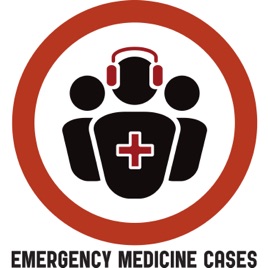
4.7
471
302
Emergency Medicine Cases
Dr. Anton Helman
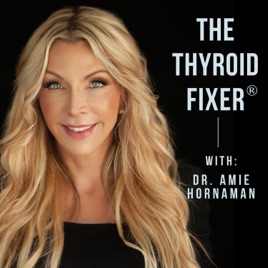
4.8
344
391
The Thyroid Fixer
Dr. Amie Hornaman
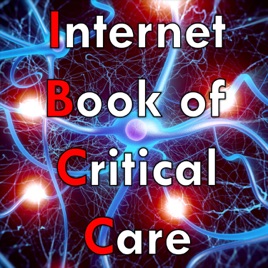
4.9
624
136
The Internet Book of Critical Care Podcast
Adam Thomas & Josh Farkas
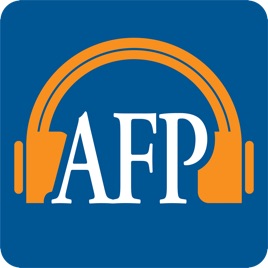
4.8
634
217
AFP: American Family Physician Podcast
American Academy of Family Physicians
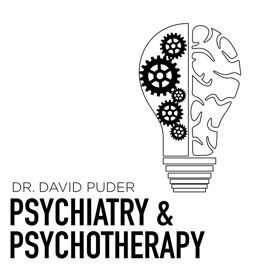
4.8
1120
208
Psychiatry & Psychotherapy Podcast
David Puder, M.D.

4.6
231
104
Psychopharmacology and Psychiatry Updates
Psychopharmacology Institute
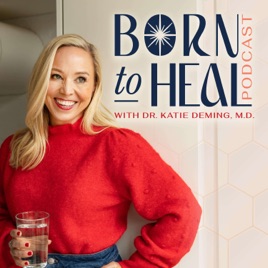
5
87
38
Born to Heal: Holistic Healing for Optimal Health
Dr. Katie Deming, M.D. | Conscious Oncologist
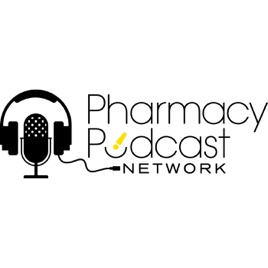
4.6
157
1099
Pharmacy Podcast Network
Pharmacy Podcast Network
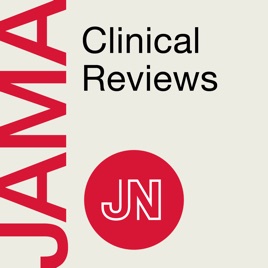
4.5
412
353
JAMA Clinical Reviews
JAMA Network
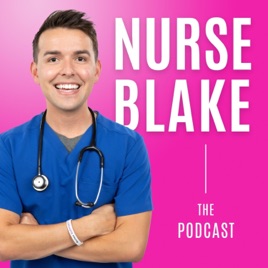
4.9
497
41
The Nurse Blake Podcast
Nurse Blake



